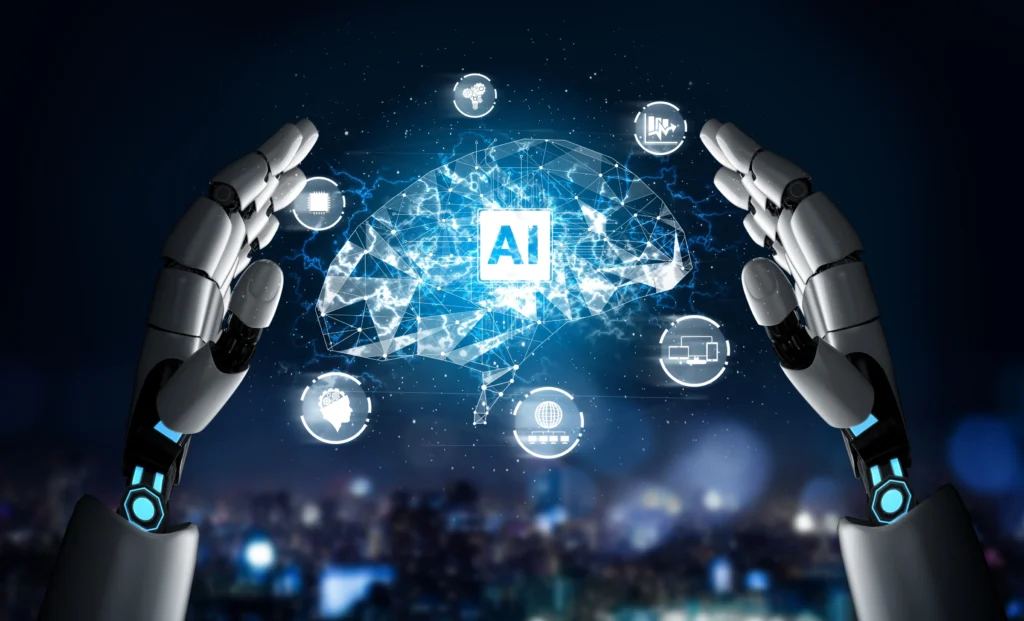Artificial Intelligence (AI): Revolutionizing Industries

Artificial Intelligence (AI) has become a game-changer across various industries, from healthcare to entertainment. With the ability to mimic human cognition, AI has opened new avenues for automation, data analysis, and innovation.
What is Artificial Intelligence?
AI refers to the development of machines and systems that can perform tasks that typically require human intelligence, such as learning, problem-solving, and decision-making. AI can be categorized into narrow AI (designed for specific tasks) and general AI (which could perform any intellectual task a human can).
Why AI is Important?
AI enhances efficiency, reduces human error, and allows for the automation of complex tasks. For businesses, it means the ability to analyze massive datasets quickly, leading to faster decision-making and enhanced productivity. AI is also transforming customer experiences, from personalized recommendations to virtual assistants like Siri and Alexa.
Use Cases in AI
- Healthcare: AI is used in diagnostic systems, robotic surgery, and personalized medicine.
- Automotive: Self-driving cars are powered by AI systems that process sensor data in real-time to navigate roads safely.
- Finance: AI algorithms help in fraud detection, algorithmic trading, and risk management.
Challenges in AI
While AI promises great potential, it comes with its own set of challenges:
- Ethical Concerns: Issues related to bias in AI algorithms and the potential for job displacement are hot topics in discussions surrounding AI ethics.
- Data Dependency: AI systems require massive amounts of data to function accurately, which can raise concerns about data privacy.
The Future of AI
- Explainable AI (XAI): A push towards making AI systems more transparent and understandable to non-experts.
- AI in Edge Computing: Running AI algorithms on edge devices, closer to where the data is generated, to reduce latency.
- General AI: Although still a distant goal, advancements are being made towards creating systems that have human-like cognition and reasoning.